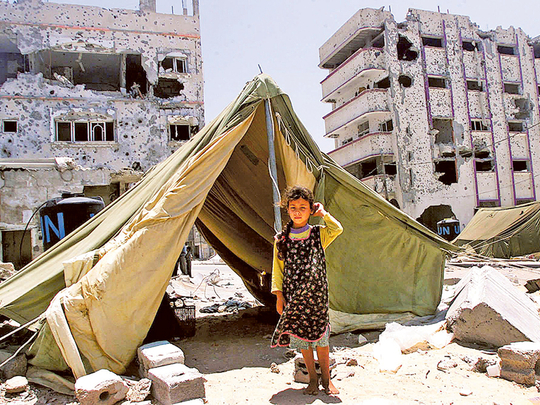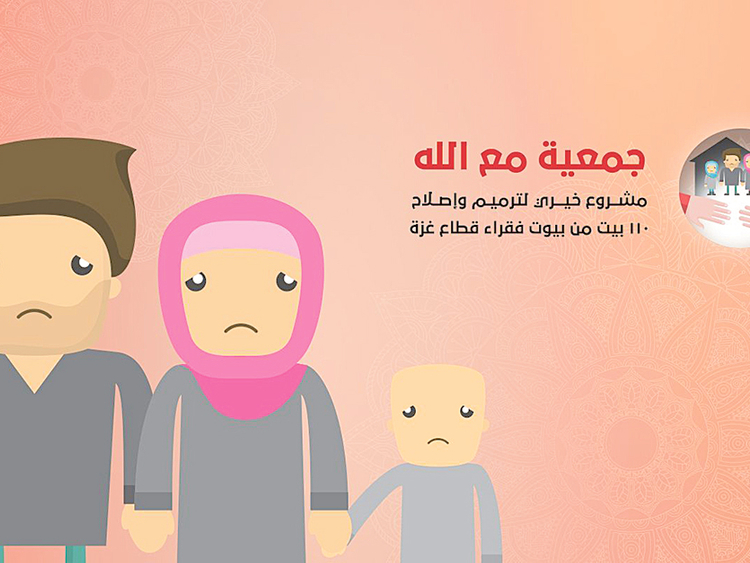
Ramallah: A group of Palestinian activists in Gaza have launched a grassroots campaign on Facebook to help renovate the homes of Gaza’s neediest families.
The “With Allah” campaign hopes to renovate at least 110 houses of Gazans.
“Our target is to attract 1,000 contributors who will commit to donating 50 Shekels (Dh48) a month for a whole year,” Mohammad Mushtaha, the campaign’s general coordinator told Gulf News.
It would cost an estimated $1,500 (Dh5,509) to build each house and all bills and documentation will be posted online, he explained.
He hopes by doing so people will appreciate the transparency and be more encouraged to donate without fearing political or bureaucratic complications.
Needy families can apply online and organisers will review the applications to choose the neediest.
Mushtaha says the needy families are not necessarily victims of Israel’s assault on Gaza, although the ongoing war, coupled with a crippling Israeli-imposed siege, has contributed to Gaza’s massive poverty and unemployment. The World Bank says less than half the money pledged by donors to rebuild the Gaza Strip after the 2014 war between Hamas and Israel has been disbursed.
The shortfall is among several reasons the Palestinian economy is stagnating, with unemployment at 42 per cent in Gaza and at 18 per cent in the West Bank.
Around 75,000 Gazans are still displaced from their homes as a $3.5 billion (Dh12.86 billion) effort to rebuild Gaza from the destruction of the war creeps along at a pace officials say has fallen years behind schedule.
Israeli, Palestinian and international officials worry the economic and humanitarian blight in the isolated coastal territory will ensure continued instability and that a new war may only be a matter of time. Last year, the United Nations warned that Gaza may become uninhabitable by 2020 if there is no change in the economic situation.
The rebuilding task is daunting. Gaza’s power lines and the territory’s sole power plant were hit during the war, leading to rolling power cuts of 12 to 18 hours a day on an electricity grid capable of supplying only half of the territory’s needs.
The power shortage has hobbled Gaza’s sewage treatment plant, sending about 24 million gallons of raw sewage into the sea daily and creating a stifling stench along the coast. Schools, businesses, farms and a medical centre also sustained tens of millions of dollars in damage.
The lack of building materials and restrictions on generators and heavy machinery are also hampering the rebuilding. The Israeli human rights non-profit Gisha said that from the end of the war through the end of 2015, only about 14 per cent of the construction materials needed to rebuild Gaza made it through to the area.
“What has been built is only a drop in the ocean of destruction,” said Palestinian Housing Minister Mofeed Hasaina. According to the UN, it will take Gaza’s economy another two years to return to the point where it was before the war.
Unemployment among Gaza’s youth is estimated at 60 per cent.













